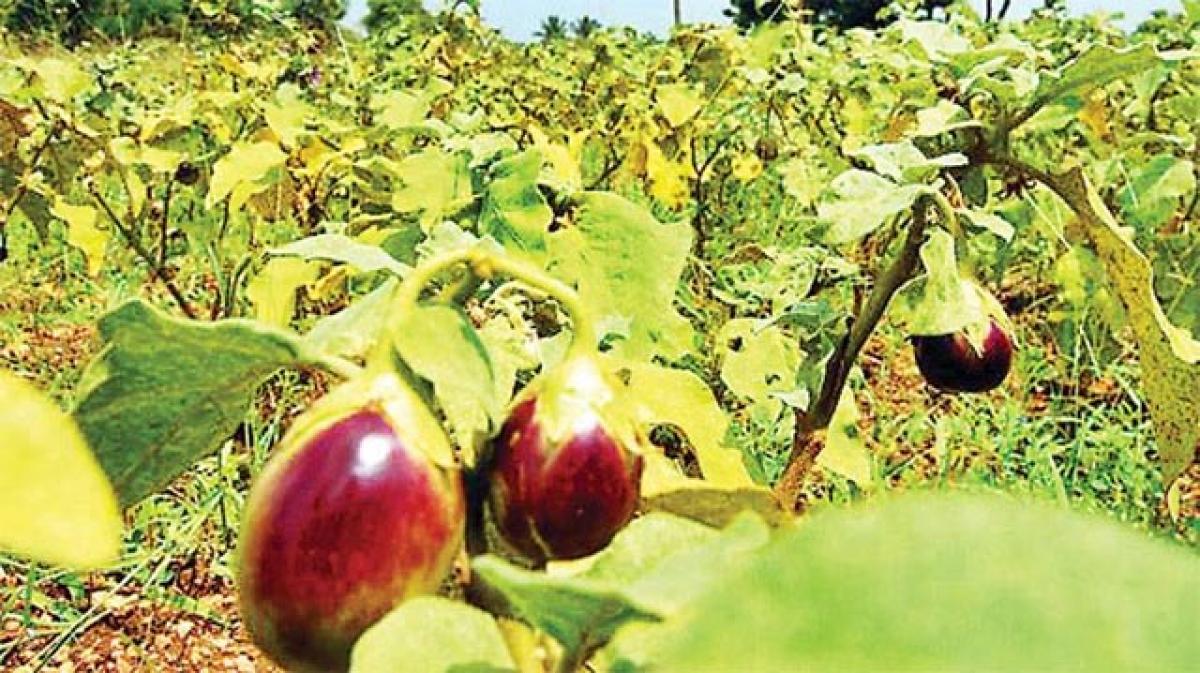Live
- Shreya Ghoshal to perform in 'Tripura Tourism Promo Fest'
- Congress lost its stature as brand, now just a regional party: Kangana
- Abu Dhabi T10: New York Strikers reflect on dominant bowling display in win over Bangla Tigers
- VHP Karnataka Resolves to Oppose Alleged Land Encroachments Under Wakf Board
- Formula 1: Verstappen claims fourth drivers' title as Russell leads Mercedes 1-2 in Las Vegas
- Air quality in Kolkata, Howrah deteriorates
- IPL 2025 Auction: Aim is to make Punjab Kings one of the powerhouses, says head coach Ricky Ponting
- PM Modi to participate in ‘Odisha Parba 2024’ today
- Udupi MLA calls for joint survey to address parking issues
- Villages choke on chemical fumes
Just In

Several scientists including Principal Scientific Adviser to GOI, R Chidambaram, stress GM seeds are vital for self-sufficiency in edible oil production and point to large imports.
For the first time India is considering commercial cultivation of a genetically modified (GM) food crop after an indefinite moratorium on Bt Brinjal in 2010. Centre for Genetic Manipulation of Crop Plants, University of Delhi, is seeking approval of the Genetic Engineering Appraisal Committee (GEAC) for environmental release of GE Mustard (Brassica juncea) hybrid DMH-11 and use of parental events (Varuna bn3.6 and EH2 modbs 2.99) for development of new generation hybrids. The government has invited comments by October 5.
Several scientists including Principal Scientific Adviser to GOI, R Chidambaram, stress GM seeds are vital for self-sufficiency in edible oil production and point to large imports. However, the way the government is going about the whole issue has raised several doubts over its intent. Civil society and some scientists argue that GM Mustard does not have higher yields than the desi non-GM variety. What is significant is that the NDA government has chosen to sideline the four reports which came out against the GM technology in edible crops viz., the Jairam Ramesh Report of February 2010, the ‘Sopory Committee Report’ (August 2012), the ‘Parliamentary Standing Committee’ Report (August 2012), and the ‘Technical Expert Committee Final Report’ (July 2013).
As many as 17 out of 28 countries of European Union (EU), along with large regions of UK and Belgium, said ‘no’ to GM crops in November 2015. Even the Supreme Court in February this year asked for contempt proceedings against 3 GEAC members for proceeding with field trials of GM Mustard despite a moratorium on trials of GM food crops. Madhya Pradesh, Rajasthan and Haryana which account for over 70 per cent mustard output disallowed GM trials.
No one disputes the role played by technology and research in ushering in the first Green Revolution in the ’60s which addressed India’s chronic food shortages. But why the core data on GM Mustard should be kept out of public domain is a big question. Even a CIC directive to GEAC to disclose all data is ignored, complains the civil society. Hence, the time is ripe for a more open debate on dangers to environment as well as farmers’ right to seed sovereignty. Lack of openness cannot be justified in the name of proprietary rights. If any, pro-GM sector can call the bluff of anti-GM activists who it accuses of merely filibustering.
The data and counter arguments put forth by GM opponents cannot be junked. Can ecological prudence be cocked a snook at, just by arguing for greater productivity? The government which has stood up to Monsanto following capping of royalty payments by Indian seed firms must allay such apprehensions in the spirit of democracy, as the issue involves biosafety and public health. GM food has been consumed in the US for the last 15 years. During the period, pesticide use rose by around 404 million pounds, says a study in Environmental Sciences Europe.
Meanwhile, stage is set for imports of corn for first time in 16 years and lack of foolproof mechanism to ensure shipments are free of GM organisms is causing a serious concern. The government must take nation into confidence and allay all apprehensions over GM food crops.

© 2024 Hyderabad Media House Limited/The Hans India. All rights reserved. Powered by hocalwire.com







